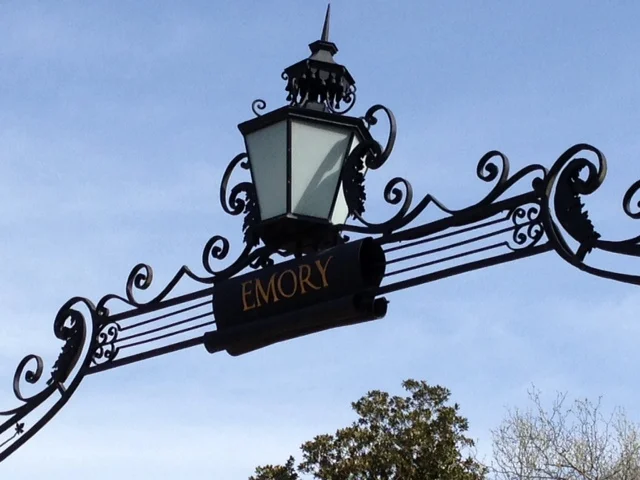When college bound students consider heading south of the Mason Dixon line in pursuit of the most selective private research universities, a set of likely candidates come to mind: Duke in North Carolina, Vanderbilt in Tennessee, Rice in Texas, and Emory in Atlanta.
Let’s look at the one without an engineering school: Emory University. Some call it the Coca Cola University, as Asa Griggs Candler in 1915, the founder of Coca Cola, provided a land grant to move Emory to its 600-acre current location. Then, in 1979, an injection of $105 million of Coca Cola stock from the Woodruff family, the scion to the Coca Cola kingdom, was given to Emory. The gift jolted higher academia as it was, at the time, the largest single gift ever bestowed on a university.
Emory is unique because it has two campuses an applicant might elect to attend. The aforementioned Emory College is located on 600 acres in the Druid Hills suburb of Atlanta with its forested, yet verdant hills and gray marbled Italian Renaissance buildings, libraries and museums.
The other is Oxford College, where the original 56-acre campus was founded in 1836, having been named after a Methodist bishop, and where, in 1863, it served as a Confederate hospital, and later, the headquarters for the Union Army.
Regardless of which campus one lands on for freshman and sophomore years, both schools offer the same academic curricular rigor. After sophomore year, all Emory University undergraduates choose to continue their studies in the Emory College of Arts and Sciences, Goizueta (pronounced goy-swe-tah) Business School, or the Woodruff School of Nursing.
Getting into the undergraduate, BBA program, at Goizueta Business School—Goizueta is named after a former president of, you guessed it, Coca Cola—is as involved and provisional (which means there is no guarantee that you will gain admissions) as gaining undergraduate admissions to Haas at UC Berkeley or Sterne at NYU.
The Director for the Undergraduate Admissions for Goizueta, Jessica Lowy, enumerates the criteria for admissions in her online introductory letter: admissions is based on a student’s academic performance at Emory or Oxford, with particular note of the grades in pre-requisite courses for the BBA program, as well as ‘leadership and involvement’ on the campus and letters of recommendation provided. Keep in mind that most departments in Emory University grade on a curve, so there are Cs and Ds given for lackluster performances.
The process requires, in essence, reapplying to Emory as a sophomore. Yet once admitted to the BBA program, a student can concentrate on a range of business subjects from Strategy and Management Consulting to Accounting and Marketing. There are Dual Concentrations, an ‘exclusive’ business research program and collaborative degrees with Emory College
If business is not on the agenda, then biological sciences (pre-med) is another outstanding Emory offering. The Center for Disease Control (CDC) headquarters is built on 15 acres of land given to it by Emory University. A slew of other NIH and health related programs are also found at Emory including the Emory Hospital Isolation Unit and Quarantine Station that was used to combat the 2014 Ebola virus outbreak. There are many opportunities to find internship and research projects right at a student’s doorstep.
Emory offers extensive mentoring and advising through its Pre-Major Advising Connections at Emory (PACE) program. This program is especially valuable to freshmen making the transition into the demands of this major research university.
With its extensive first year seminars and continuing writing courses, Emory was cited as having one of the best writing programs in the country by the Huffington Post. Moreover, should budding researchers need assistance on a project, they might turn to the Emory Writing Center for 45-minute individual sessions, or to the Robert Woodruff Library, where specialized research librarians can offer guidance on Korean history or the DNA helix.
An Emory University education is only as limited as the energy and curiosity a student brings to the campus. At Emory ‘The wise heart seeks knowledge.’

